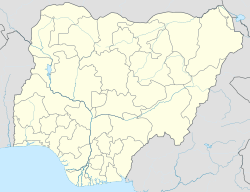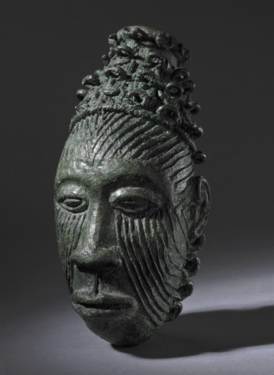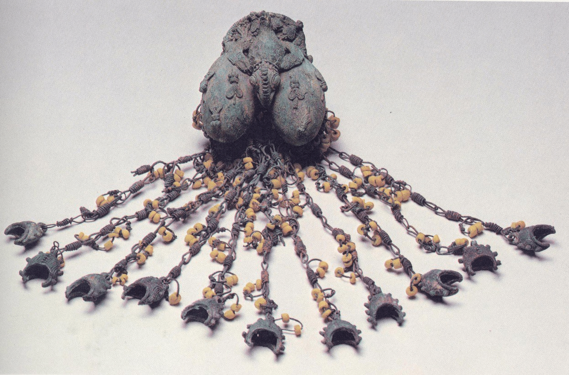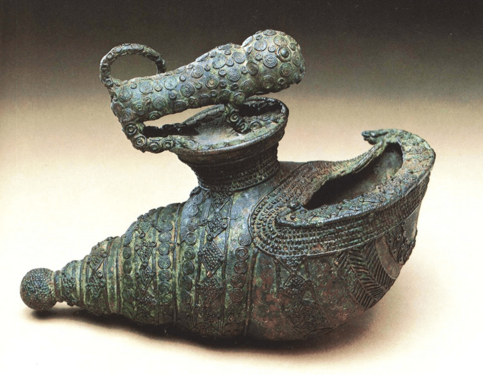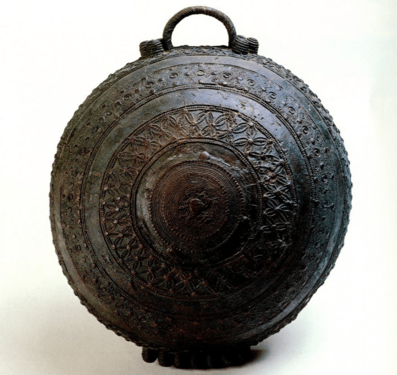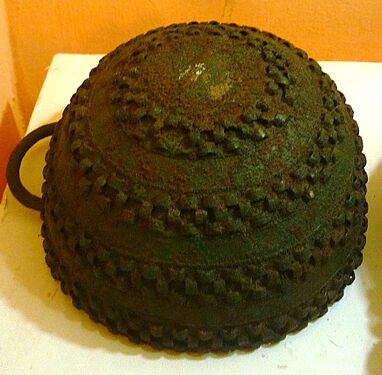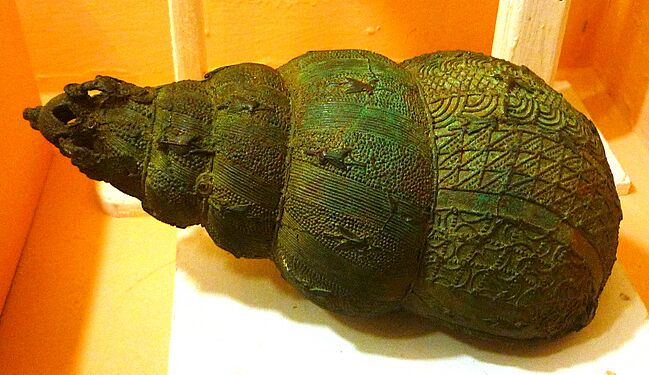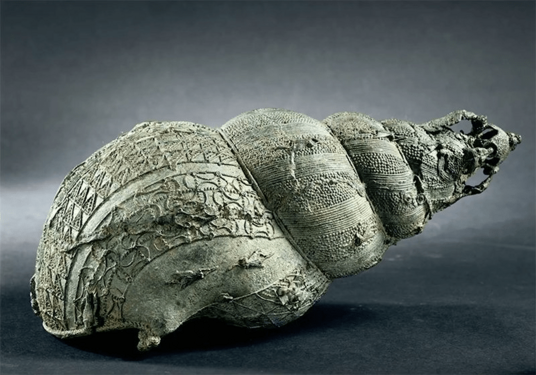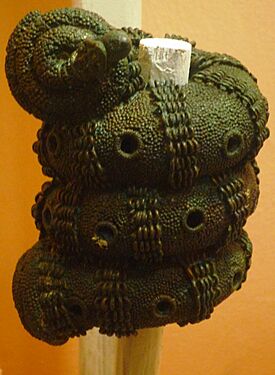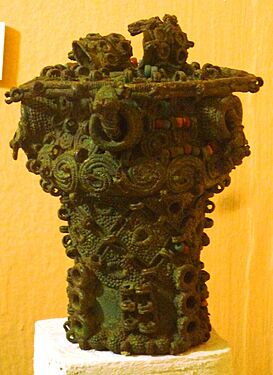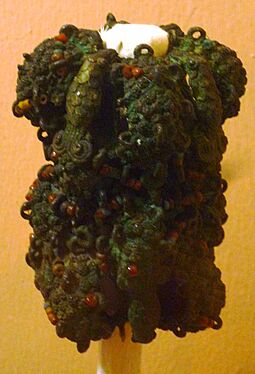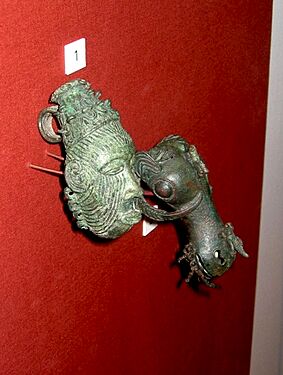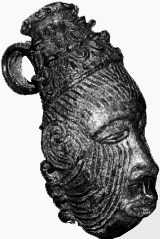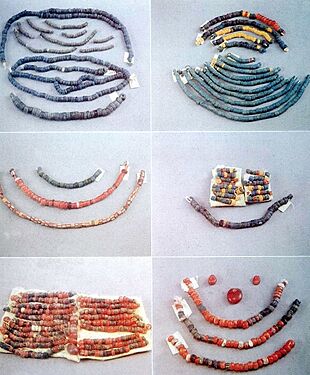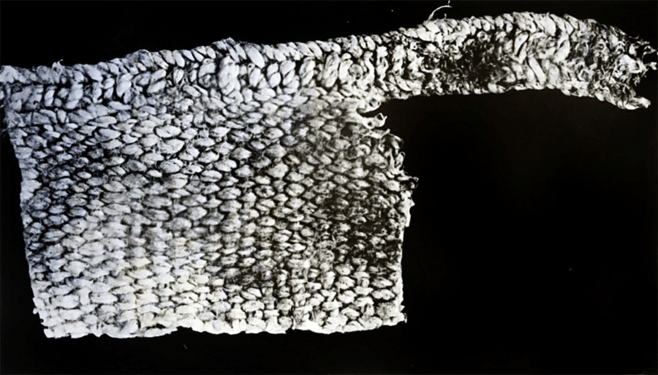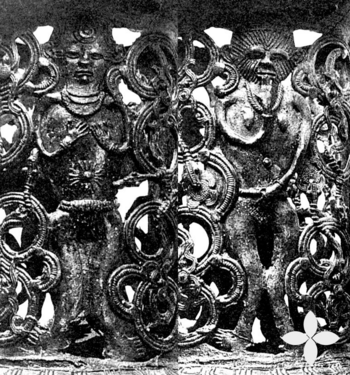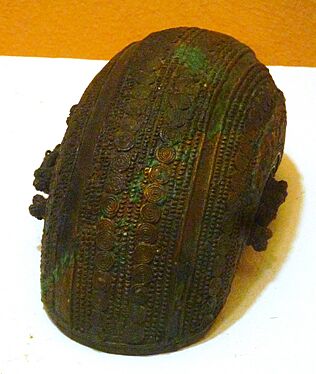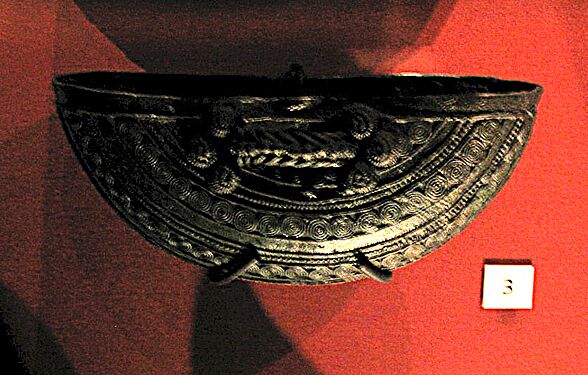Igbo-Ukwu facts for kids
Quick facts for kids
Igbo-Ukwu
|
|
|---|---|
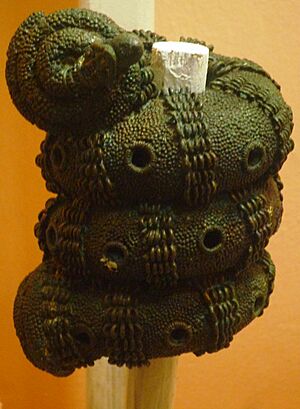
9th century Igbo-Ukwu bronze ceremonial staff head
|
|
| Country | Nigeria |
| State | Anambra |
| LGA | Aguata |
| Population
(2007)
|
|
| • Total | 79,317 |
| • Ethnicity | Igbo 99% |
| • Religion | Christianity Odinani |
| Time zone | UTC+1 (WAT) |
| National language | Igbo |
Igbo-Ukwu (pronounced EE-boh OO-kwoo) is a town in Anambra State in Nigeria. Its name means "Great Igbo" in the Igbo language. The town has three main parts: Obiuno, Ngo, and Ihite. Many villages are found within these parts. Igbo-Ukwu is surrounded by other towns like Ora-eri and Ichida.
Contents
Discovering Ancient Igbo-Ukwu
Igbo-Ukwu is famous for three archaeological sites. An archaeological site is a place where people find old objects and buildings from the past. At these sites, amazing bronze objects were found. These objects show that a very skilled metalworking culture lived here. They made these bronzes around 9th century AD. This was hundreds of years before other known bronzes in the area.
The First Discovery: Igbo Isaiah
In 1938, a local villager named Isaiah Anozie found the first bronze works. He was digging near his home. This site was named Igbo Isaiah after him. Five of these original bronze objects are now in the British Museum. They include a small staff, a ram's head, and a beautiful crescent-shaped pot. There is also a small pendant shaped like a chief's head. It has special marks called ichi on its face.
More Discoveries: Igbo Richard and Igbo Jonah
Later, in 1959, an archaeologist named Thurstan Shaw led more digs. The Nigerian government asked him to do this. He found two more sites: Igbo Richard and Igbo Jonah. These sites held even more ancient objects. They found jewelry, pots, and a body dressed in what looked like royal clothes. Many objects made of bronze, copper, and iron were also found. Some materials found here show that the people traded with places as far away as Egypt.
Dating the Discoveries
Scientists used a method called Radiocarbon dating to find the age of the sites. They found that the objects are from around 850 AD. This means the Igbo-Ukwu culture was the earliest known group to cast bronze in this region. These sites are linked to the Nri-Igbo people. The three sites were used for different things:
- Igbo Isaiah was a shrine (a holy place).
- Igbo Richard was a burial chamber (where people were buried).
- Igbo Jonah was a cache (a hidden collection of valuable items).
The objects found show that by the 9th century AD, the Igbo-Ukwu people had a complex religious system. They also had an economy based on farming and trading with other African groups.
The Art of Igbo-Ukwu Metalworking
The people of Igbo-Ukwu were very skilled at working with metal. They were the first in West Africa to work with copper and its alloys (mixtures of metals). They shaped metal by hammering, bending, twisting, and carving it.
They were also likely among the first in West Africa to use the lost-wax casting method. This is a special way to make bronze sculptures. In this method, a wax model is made, then covered in clay. When heated, the wax melts away, leaving a mold for liquid metal.
It's interesting that even though they were so skilled, Igbo smiths seemed to have limited other metalworking techniques. They didn't use methods like soldering (joining metals with heat) or making wire. These methods were used in other parts of Africa.
Gallery
Climate in Igbo-Ukwu
The weather in Igbo-Ukwu is warm all year round. The dry season is often humid and partly cloudy. The wet season is usually very humid and cloudy. The average temperature stays between 64°F (18°C) and 85°F (29°C). It rarely gets colder than 56°F (13°C) or hotter than 88°F (31°C). Because the temperature doesn't change much, there aren't really "hot" or "cold" seasons here.
See also
Images for kids


